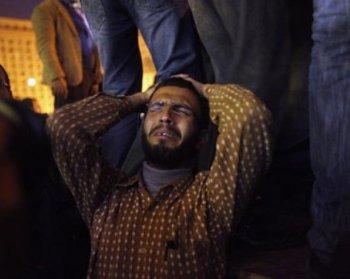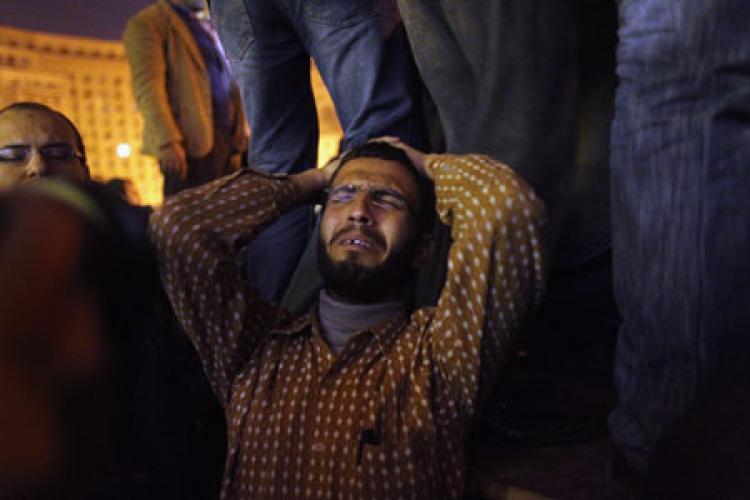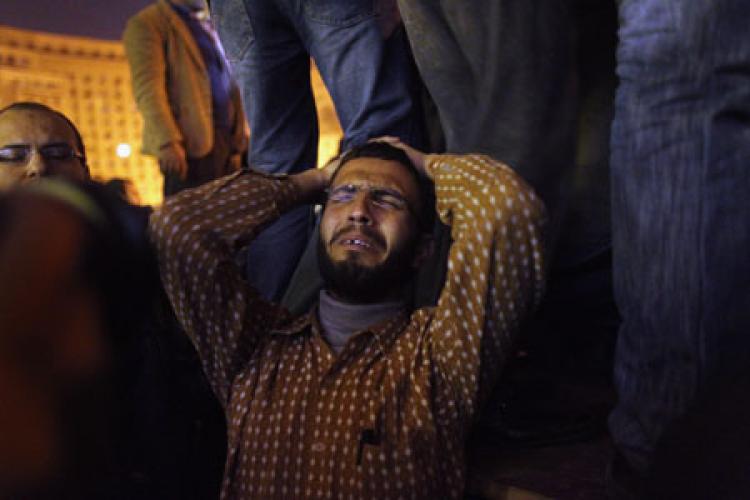Feb. 10 will be remembered by Egyptian protesters as the day when high expectations became heightened anger and frustration. All day rumors were rife that President Hosni Mubarak would be announcing his resignation in a speech promised that evening.
Egypt’s Military High Council held meetings earlier in the day, without its commander Mubarak, then conveyed to the protesters via the national station Channel 1 TV that “their demands [would] be met today.”
For the first time, the state television station reported on the protests, representing an about-face in its coverage that previously ignored the masses in the streets. Shortly before Mubarak’s speech, the channel ran a story about corruption in the country.
Even CIA Director Leon Panetta, speaking to the House Select Intelligence Committee, said he expected Mubarak to step down.
“I got the same information that you do that there is a strong likelihood that Mubarak is to step down this evening,” Panetta said.
Hundreds of thousands of people gathered in Cairo’s Tahrir Square, in Alexandria, and elsewhere across Egypt in eager anticipation of Mubarak’s announcement.
In Cairo, where the eyes of the world were focused, the square was uncommonly quiet as he began to speak—about 1.5 hours later than originally announced. The mood then shifted briefly to shock, before erupting into intense anger as it became clear that he was not leaving office.
People in the square began waving their shoes in the air—the highest form of offense—yelling and jeering to Mubarak, “Go! Go! Leave! Depart!”
Channel 1 TV covered none of the angry reactions.
The speeches
Mubarak made it clear that he plans to stay on as president until scheduled elections in September.
The furthest he went toward relinquishing power was to “delegate” responsibility to his vice president Omar Suleiman, Egypt’s intelligence chief who was appointed vice president on Jan. 29.
The president made it clear, however, that he will not flee the country, and plans to die in Egypt, and nowhere else. “Egypt will remain until I hand over the trust and banner,” and “I will not separate from the soil until I am buried underneath.”
“The current moment is not relating to my personally. ... It is now relating to Egypt,” he said.
Mubarak’s speech was infused with strong references to patriotism and nationalism, sending a clear message that he sees himself as tied to Egypt’s future. He talked about his own service in the military and reminded protesters that he was once young too, just like them, and at that time he worked for “peace, stability, independence, and [the] sovereignty of Egypt.”
Mubarak then made some token concessions to what protesters have been demanding. He said he would discuss amending articles 76 and 77 of the constitution, which relate to who qualifies to run for president and the length of presidential terms.
He said he would lift the state of emergency when the time is right.
He also spoke about the economy saying that Egypt has “suffered losses and damages, day by day,” since the protests began on Jan. 25. If the economy fails, he said, “The youth who are calling for reform and change will be [its] first victims.”
Shortly after Mubarak finished his speech, an address from Suleiman was broadcast over national television and to the crowds across Egypt.
Suleiman made clear that his job is to carry out the president’s will, shouldering a responsibility to “safeguard the interests of Egypt, to restore peace and security to the Egyptian public, [and] to restore the way of life.” In other words, he was there to carry out the will of the president, and that would be no real shift in direction.
He asked protesters to go home and return to normal life, saying “I call on the youth of Egypt, the youth, and heroes of Egypt, to go home, go back to work. The country needs your hand, let’s join hands.”
He also expressed in several ways that he felt the unrest was due to foreign influence, which he urged Egyptian youth not to follow.
“Do not listen to the satellite television stations whose main purpose is fuel sedition and drive a wedge between the people,” said Suleiman.
With reporting by Laila Hassan in Cairo.







